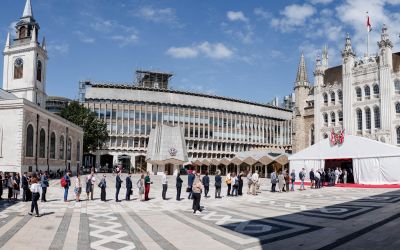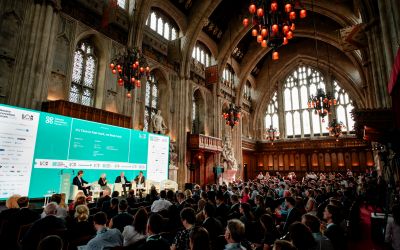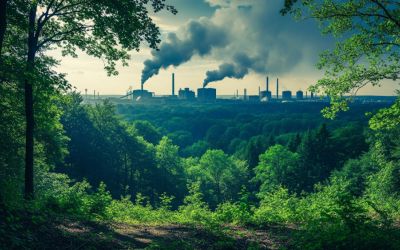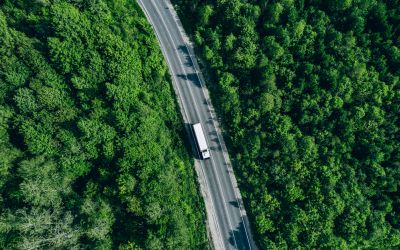Interview with Andreas Regnell, Head of Strategy at Vattenfall
Climate Action spoke with Andreas Regnell, Head of Strategy at Vattenfall - one of the largest producers of electricity and heat in Europe.

Firstly, could you please introduce Vattenfall’s origins and objectives?
The origin of Vattenfall: over 100 years building the Swedish low CO2 footprint energy system with a high share of renewable power. We later expanded into Germany, Netherlands, UK, Denmark and Finland.
Vattenfall is one of the largest producers of electricity and heat in Europe, active in all parts of the value chain: generation, distribution, trading and sales. Operations are conducted in the Nordics, Germany, the Netherlands and the UK. Vattenfall is firmly committed to delivering carbon-neutral energy in Europe in line with the EU’s long-term decarbonization objective for 2050. To support that ambition, Vattenfall has set own CO2 emission reduction targets, as well as pushed for a structural reform and strengthening of the EU’s carbon market (EU ETS). But the EU’s drive for a low-carbon economy by 2050 must be embedded in a wider global response to tackle climate change.
How does Vattenfall carry out its sustainability targets?
We have a strategy that is based on becoming a fully sustainable energy company. For us that is a prerequisite for maintaining and developing our role as an important player in this sector in a more CO2-constrained future.
The Paris Agreement is a confirmation of Vattenfall’s strategic objective to steeply reduce our CO2 exposure and our commitment to contribute to making EU power generation CO2-neutral by 2050 at the latest. And we are looking into ways of achieving CO2 neutrality already by 2040. This year, we took another major step in reducing our own CO2 emissions by divesting the lignite business. It will mean that, next year, our CO2 emissions will be less than 1/3 of the level in 2015. At the same time, we are steering most of our available capex to investments in renewable energy, incl. several new offshore wind farms in UK, Germany and Denmark.
Apart from CO2 and other forms of environmental protection connected to our operations, we are also increasingly focused on: resource efficiency, human rights in fuel sourcing, etc.
Vattenfall is involved in developing wind, solar, hydro and biomass energy. What are the pros and cons of each?
All sources of energy have different characteristics and in the right combination a very competitive and sustainable energy system can be constructed – so I do not think pros and cons is the right way to think about it. But naturally, hydro and biomass have the advantages of being able to regulate in short-term, as oppose to intermittent sources such as wind and solar. If we are aiming for an energy system with very high shares of RES, it’s therefore important to have a combination. Overall, we see large potential the RES industry and it’s a fascinating development right now with regards to quick technological development and continuously reduced production costs. Vattenfall is committed to further reducing production costs of all low-CO2 technologies in the everyday work that we do.
What is the future for renewable energy at Vattenfall? How is the market changing?
We strongly believe that a renewable system represents a must for society but also an opportunity where the market has a clear direction of lower cost for all sustainable solutions.
Vattenfall will continue to reduce costs in the large-scale projects underpinning our strong growth in renewables, as well as explore new decentralized electricity and heat solutions with the customer in focus. Naturally, this will require a lot of new innovations, more efficient operations and reaping the benefits of digitalization. We see many opportunities in the new energy landscape, although the margins of many new projects are squeezed today, and we are therefore rapidly reshaping the business models and the way we operate in the market. New solutions and increased efficiency will be key to capture the new business opportunities.
Vattenfall is a gold sponsor of the upcoming Sustainable Innovation Forum in Marrakech. What were your motivations behind your involvement with this event?
It is a win-win situation! We want to support the development in general – but it is also a way to understand how fast what parts of the market will move and that is very valuable commercial input in to our business development efforts/prioritizations
You will be taking part in the ‘decarbonising energy supply’ panel at SIF. Could you outline what you will be discussing?
I hope that we will be able to get the message across that it’s urgent that the global climate policy making stays on course and continues to build upon the positive momentum that we experienced in Paris last year, and that there is no time to lose if we shall be able reach the objective of limiting the global warming to well under 2 °C, or even 1.5 °C. A process needs to be initiated at COP22 whereby all countries prepare for increasing their respective commitments (NDCs), so that the gap between commitments (NDCs) and the GHG emissions trajectory consistent with the 1.5 °C target can be closed in a timely and structured manner. Vattenfall is ready to enter the next step in this huge transition, but we also need a regulatory environment which supports these actions in a market based fashion. In our view, putting a price on CO2 emissions is a very effective and powerful tool.
Vattenfall is therefore highly engaged in the current efforts to reform the EU’s Emission Trading System (EU ETS) for the new trading period that starts in 2021 and we are also very interested in discussing how the new global market-based mechanisms under Article 6 of the Paris Agreement will be developed to stimulate further market-based CO2 reductions through cooperation on the global scale.





